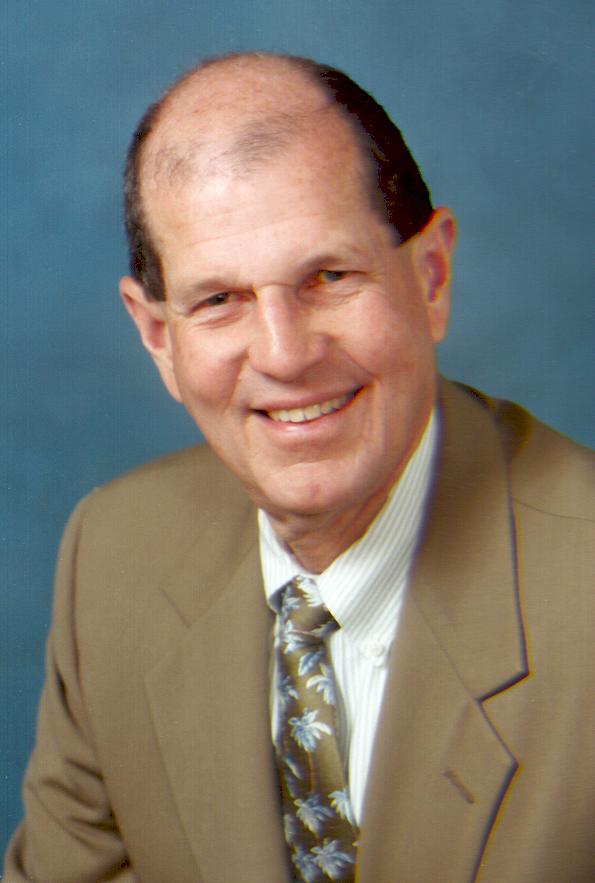Paul Cooke

Q. What does your company do?
A. HDR is a full service engineering and architecture firm. We provide design and consulting, architectural, engineering, environmental services and economic analysis for public and private clients. Business sectors include water, wastewater, transportation, environmental, civic, healthcare and science and technology architecture, and federal projects.
Q. What academic degrees do you hold?
A. Bachelor of Science in Chemical Engineering from Ohio State in 1970; and Master of Business Administration from Rider University in 1978.
Q. What is the purpose of the college board of advisors?
A. We assist Dean Johnson in continued expansion and awareness of the college in the community. We offer guidance in tailoring the curriculum to meet current needs of the engineering profession, and address areas where engineering students need to place greater emphasis.
Q. What changes have you seen in the college and UNC Charlotte?
A. There has been an impressive expansion in both enrollment and the curriculum.
Q. What is exciting at the college?
A. I’m seeing a lot more recognition of the Lee College of Engineering in the Charlotte area and in regions beyond North Carolina.
Q. What do you see in the future for the college?
A. I’d like to see the college lead the expansion of the engineering profession in Charlotte. I think Charlotte needs to expand its business base, and both the College of Engineering and motorsports research center offer this opportunity.
Q. What are your thought about the football team?
A. The future football program is an exciting opportunity for the university. The program will generate more publicity, which will benefit the overall university and the colleges and programs.
Your Engineering Career
Q. Why did you become an engineer?
A. From my youth I’ve always been interested in technology and how things work.
Q. What skills have been important in your career?
A. A good overall engineering basis is the critical parameter of success in the engineering profession. Additionally, a dedicated attitude and diligent quality control of one’s work are very important to demonstrate exemplary performance. Regarding quality control, there needs to be equal emphasis on quality reviews of studies, engineering design, calculations, specifications and drawings, as well as emails, letters and reports.
Q. What changes have you seen in the profession during your career?
A. There is now much more importance placed on being able to communicate with clients. Environmental and public concerns are now critical on all projects.
Q. What is the most exciting project you ever worked on?
A. There have been many. From the engineering design standpoint, I’d say an odor and dust control system upgrade for a major detergent manufacturing facility; a project in Sydney, Australia, involving the composting of municipal waste; and upgrades and odor elimination for a major wastewater treatment project. From a construction perspective, the replacement of two bridges with a signature cable-stayed bridge offered numerous challenges and rewards, especially being able to view and drive on the completed project.
Q. What is the best career advice anyone ever gave you?
A. Do jobs right the first time, by having good quality control.
Q. What do you like best about your job?
A. I thrive on challenges. I like variety and new challenges.
Hiring Engineers
Q. What is your company looking for in new engineers?
A. First of all, we want a solid engineering base. We also like to see co-op experience and student project experience. Excellent communication skills are also a must.
Q. Where are good opportunities for engineers?
A. Almost all areas of engineering are good right now.
Q. What are the hot engineering markets for the future?
A. Energy and environmental projects are very active sectors and probably will be for many years.
Q. How valuable is an advanced degree?
A. Having a M.B.A. has been beneficial to me. But I don’t recommend getting one as soon as you graduate. It’s best to work a few years, and then attend courses at night. Delaying an M.B.A. allows the student the benefit of applying some of the concepts with the current work experience.
A master’s in engineering gives you a big advantage. In some areas, especially environmental, it is now becoming almost mandatory.
Experience with the Lee College of Engineering
Q. How have you enjoyed your involvement with the college?
A. I thoroughly enjoy working with the college. I like discussing all the new ideas with other board members.
Q. Have you been involved in senior design projects, co-ops or internships?
A. HDR has been offering co-ops and internships for several years. They provide students with valuable experience.
Q. What growth areas do you see in the college?
A. I see great importance in supporting the energy and environmental industries. However, we must not overlook the stable transportation infrastructure work. North Carolina has had an aggressive program for road improvements and expansions, which results in steady and reliable work for engineers.
Importance of Community Involvement
Q. What importance does your company place on community involvement?
A. HDR places extensive importance on community involvement. It is one of our core values.
Q. What value does your company get from the college and from you being on the board?
A. We have hired some excellent students, including interns and co-op students, who became important members of the HDR team
Q. What importance do you place on giving back to the community?
A. If we want to continue to be successful as a community, we have to give back in terms of our talent, time and money.
Q. What are your thoughts on the value of university research?
A. It is always critical to building the reputation of the university.